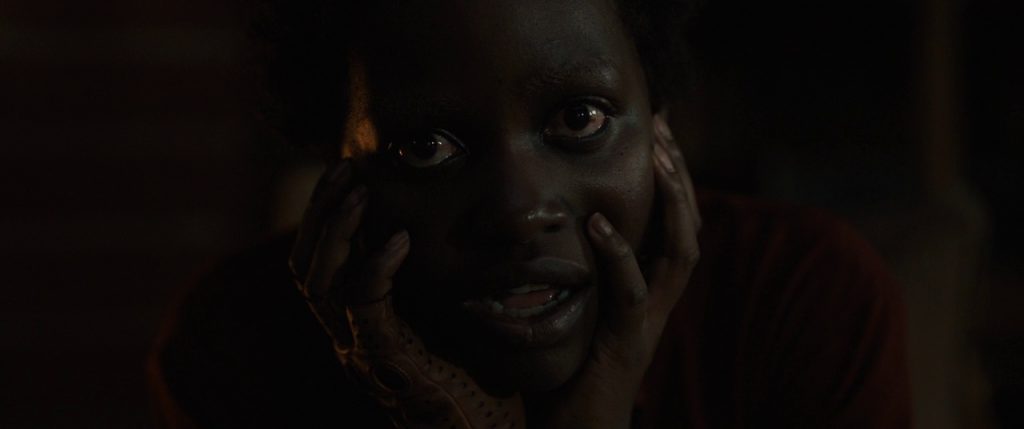“Us” by Jordan Peele: Horror and Social Commentary In One Movie

The movie that I have chosen to review is “Us” by Jordan Peele, a prolific black actor, comedian, and director most well-known for his horror movies. Jordan Peele’s horror movies are unique in that they cast black people as their main characters, something that is unusual in the vast majority of horror films from the West. Typically, the stereotype in horror movies is that black characters serve as side characters that are killed off first, barely garnering enough screen time to even be remembered by viewers. Horror movies that do feature black people as long-standing and main characters are typically comedic in nature, such as the “Scary Movie” series. What makes Peele’s movies unique is that although they have some comedic elements, they consist largely of psychological and surrealistic horror with black people as the main protagonists (and in some cases antagonists). In essence, Peele’s horror allows black characters to get the same depth and storylines as white characters have for decades in the same genre.
Cinematographically, Peele’s “Us” was a masterpiece. Visually striking imagery is prevalent throughout the entire film, so much so that screen captures of the best shots have been circulating on the Internet since its release. Through the use of rich colors, carefully used dark lighting, and uncomfortable close-ups of character’s faces, often at intense or pivotal moments, Peele was able to create an intriguing, vivid, and wholly uncomfortable visual experience. This combination of visual strategies led to an off-kilter feeling that was at times deeply unsettling for the viewer yet not repulsive or distressing enough to make them look away. Instead, a balance between beauty and the disturbing was carefully cultivated to keep the viewer’s attention throughout the entire movie. Truly, this film was impossible to look away from.
A Jordan Peele movie would not be a Jordan Peele movie without some level of social commentary. “Us” is no exception. Although the social commentary in “Us” is less apparent than in his previous movie, “Get Out”, it is certainly still present throughout the entire storyline. The film is a literal manifestation of what Americans typically fear most. It is people who are not your family, not from where you are from, and not sharing your beliefs or customs invading your homes and driving everyone, including you, out. This is the well-established fear that is associated with immigration and assimilation, and Peele grapples with this theme in a way that is much more graphic than reality. Those that “replace” prior residents, the “tethered”, are animalistic, violent, and utterly strange, mostly only communicating in grunts and brutally murdering all those that they replace. In this way, it seems that Peele’s “Us” is validating the fears of Americans being replaced by immigrants in the most extreme way possible. However, a second glance reveals that that is not his main argument. Yes, the tethered participate in awful acts, but they are also identical doppelgangers to those they are replacing. In fact, they are exactly the same, and the only way they differ is in the way that they live and their outlook on how the world is. So much so, that one of the main characters is revealed at the very end of the movie to be a tethered, unbeknownst to every “normal” person in the movie. In essence, Jordan is creating a direct parallel between the tethered and “normal” people and immigrants and Americans. The only thing that distinguishes the tethered from every other person is experience. Their uprising only came after years of oppression, trapped beneath the ground and not able to experience a single day of sunlight until they finally broke free.
What is so masterful about “Us” is that this is not readily apparent when you complete the film. Admittedly, I at first struggled to find the social commentary in the movie. However, once it clicks, it clicks, and all of the themes and storylines in the film begin to make sense as one central argument. I believe that enabling the audience to gradually reach their own conclusions rather than making them explicitly clear is one of the most valuable things that a film can do, especially with an issue that is as far-reaching and impactful as the simultaneous battle for and against immigration in the United States. What is at first a compelling horror with hauntingly beautiful cinematography transforms into a medium for the message that Peele and countless others are trying to convey. In this way, “Us” is not just a film but a critique of American fears and values.